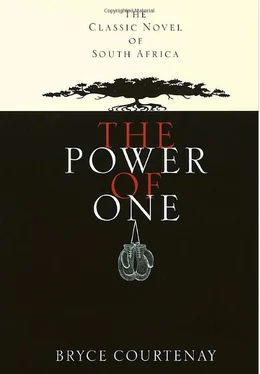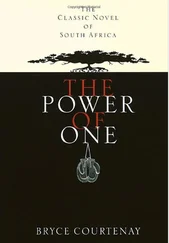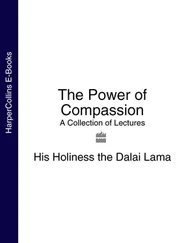Брайс Куртенэ - The Power of One
Здесь есть возможность читать онлайн «Брайс Куртенэ - The Power of One» весь текст электронной книги совершенно бесплатно (целиком полную версию без сокращений). В некоторых случаях можно слушать аудио, скачать через торрент в формате fb2 и присутствует краткое содержание. Жанр: Современная проза, на английском языке. Описание произведения, (предисловие) а так же отзывы посетителей доступны на портале библиотеки ЛибКат.
- Название:The Power of One
- Автор:
- Жанр:
- Год:неизвестен
- ISBN:нет данных
- Рейтинг книги:3 / 5. Голосов: 1
-
Избранное:Добавить в избранное
- Отзывы:
-
Ваша оценка:
- 60
- 1
- 2
- 3
- 4
- 5
The Power of One: краткое содержание, описание и аннотация
Предлагаем к чтению аннотацию, описание, краткое содержание или предисловие (зависит от того, что написал сам автор книги «The Power of One»). Если вы не нашли необходимую информацию о книге — напишите в комментариях, мы постараемся отыскать её.
The book is made to movie with the same name.
The Power of One — читать онлайн бесплатно полную книгу (весь текст) целиком
Ниже представлен текст книги, разбитый по страницам. Система сохранения места последней прочитанной страницы, позволяет с удобством читать онлайн бесплатно книгу «The Power of One», без необходимости каждый раз заново искать на чём Вы остановились. Поставьте закладку, и сможете в любой момент перейти на страницу, на которой закончили чтение.
Интервал:
Закладка:
After all the years of incarceration he was a polished performer, no less a maestro at his profession than Doc was at his. Perhaps more so, for as a procurer Geel Piet was a genius.
Geel Piet ran the prison black market, in tobacco, sugar, salt and dagga (cannabis). In the end, he controlled the mail coming and going from the prison and thus the money brought in. He also had an encyclopaedic knowledge of boxing and a rare gift for spotting errors of style and weakness in performance. My desire to become a boxer was all too apparent, but it is a sixth sense to men who have to survive on their wits, and who have to sniff the air before every move and wager everything on a chance observation or a cunning guess, that told him I was an easy mark.
It took just over a year for Geel Piet to ingratiate himself to the point where I would unknowingly begin to serve him. Our entire relationship was built upon small conversations eked out over weeks until an understanding formed which eventually led to the conspiracy that made me present him with a leaf of tobacco.
I had been culling a patch of Euphorbia pseudocactus , a cactus-like plant which grows close to the ground and is extremely thorny. It has a habit of spreading quickly under ideal conditions and it had started to invade territory in the cactus garden which didn’t rightly belong to it. Because of the thorns I had put Doc’s cutting in a galvanised bucket which I’d brought from the garden shed at home. Almost without thinking I had lined the bottom of the bucket with a large tobacco leaf which was covered by the thorny cactus for Doc’s prison garden. Something must have made me do it: perhaps Geel Piet, somehow, with his patience and snatches of seemingly unconnected dialogue. Tobacco is, after all, the greatest luxury and the most essential commodity in the prison system. With the war on, the normal shortage behind the walls had become severe, so that it was more highly prized than ever.
I was never searched as I entered the prison, although on this particular day, carrying a bucket rather than a bag, a mildly curious guard wanted to know what was in the bucket and had come on over to take a look. In fact I had not been worried, having entirely forgotten about the tobacco leaf. ‘Funny how he likes all these ugly plants, hey?’ the guard said, for Doc’s cactus garden was directly outside the warders’ mess and was the butt of many a joke, most of them about cactus being just the sort of plant for a prison. ‘If the prisoners revolt we’ll all hide in the professor’s garden, those blêrrie Kaffirs wouldn’t be game to try to get us out.’
I had taken the bucket through to the hall after the squad workout and as usual Geel Piet, who was becoming more and more useful and who, over the ensuing year would assume the place of personal servant to Doc, took the bucket with the cuttings to Doc’s garden. He had returned with it, his permanently broken face wreathed with smiles. ‘I will help you to be a great boxer,’ he simply said. And that was how it all got started.
I broached the subject of the tobacco with my granpa when I returned home that afternoon after school. I did not really think about the moral issue involved. After a year of going in and out of the prison each weekday I had come to understand the system. Morality was suspended, war existed between two sides and even aged eight I could see the odds were heavily biased towards one of them. The prison warders were an extension of the kids at the hostel: a brutal force confronting a defenceless one where crimes supposed or otherwise were being paid for. The idea of committing further petty crime in this sort of atmosphere and being brutally, often savagely punished was bizarre and quite unreal. Doc and I were not a part of either side, we were an audience who would, from time to time, make a decision to enter the play. While we couldn’t change the plot, we could relieve the actors of their tedium.
My granpa was generally suspicious of unquestioning moral rectitude, preferring to judge each item as it came to him; as prepared to have Inkosi-Inkosikazi cure his gallstones as he was to give the Boers credit for being musicians and good shots. We sat on one of the steps leading up to a terrace. Between much tamping, tapping and lighting of pipe and staring into the distance over the paint-faded and rust-stained roof, and after ascertaining that I was never searched, he decided that the prisoners should have the tobacco.
‘Poor black buggers, it’s worse for them than it was in England in the seventeenth century. Most of them are in for crimes that deserve no more than a tongue lashing.’
He was wrong. Barberton was a heavy-security prison and most of the prisoners, except for the politicals, had committed crimes that were worthy of formal punishment in any society. It was the administration of the prisoners’ life that was the real crime, and it was not unusual for a prisoner to be beaten to death for a comparatively minor infringement of prison rules. Such occasions were discussed among the warders quietly, almost secretly, but with an inner glee.
I think my granpa was partly influenced by the thought that the mounting stock of tobacco leaves from Marie’s farm would start to dissipate and that in some small way he too was fighting the sort of injustice he abhorred. He carefully instructed me in the use of tobacco-infused water for insect control, and gave me a note to Doc explaining how it was done. The plan was for Doc to set up his own drum beside the cactus garden and infuse it with two tobacco leaves at rare intervals. In the event of a single load of tobacco entering the prison being discovered, Doc, a non-smoker, could quite easily explain its destination.
Doc had requested to remain in Barberton prison rather than be transported to an internment camp in the highveld. The thought of being away from his beloved mountains, his cactus garden and his piano was more than he could bear, and I’m sure our friendship also played a large part in his reluctance to leave Barberton. Kommandant Van Zyl, who had come to regard Doc as the personal property of the prison and a constant thorn in the side of the English-speaking town, was more than happy to co-operate. I think in the end the military authorities must have given up trying to extricate him from the civil prison system, and Doc spent the remainder of the war under the benign supervision of the Kommandant.
Of course, Doc was co-conspirator in what became a sophisticated smuggling system. Being in the prison constantly he was there when the work gangs returned at night and left again at dawn. He was forced to see an aspect of Africa he had never witnessed. Doc was a man who preferred not to take sides in any issue other than one of the intellect. Rather than face the dilemma of black and white confrontation and the pre-ordained decision of white superiority, he had chosen to avoid it altogether by not having servants or any dependence on Black Africa. But he was also a compassionate and fair-minded man and the unthinking brutality of the warders offended him deeply. Both of us lacked the wisdom or the knowledge of the baser side of men, though I probably had more experience of this than Doc did. We saw the brutality around us not as a matter of taking an emotional side, or of good versus evil, but as the nature of evil itself, where good and bad do not come into play. We were simply intellectually forced to take the side of the prisoners. Man brutalised thinks only of his survival. Geel Piet was as ruthless as his oppressors and of necessity a great deal more cunning. The power the tobacco and the other things which later came into the prison gave him was enormous, and he used it to ensure his own survival and to serve his own ends as ruthlessly and as carelessly as the warders used their superiority.
Читать дальшеИнтервал:
Закладка:
Похожие книги на «The Power of One»
Представляем Вашему вниманию похожие книги на «The Power of One» списком для выбора. Мы отобрали схожую по названию и смыслу литературу в надежде предоставить читателям больше вариантов отыскать новые, интересные, ещё непрочитанные произведения.
Обсуждение, отзывы о книге «The Power of One» и просто собственные мнения читателей. Оставьте ваши комментарии, напишите, что Вы думаете о произведении, его смысле или главных героях. Укажите что конкретно понравилось, а что нет, и почему Вы так считаете.












